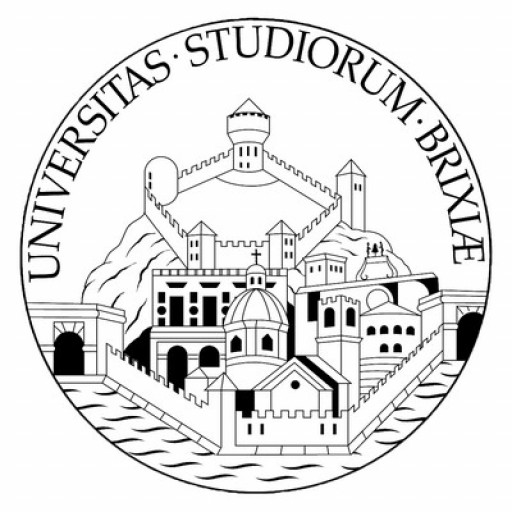Photos of university
The Micro and Nanotechnologies program at the University of Science and Technology of Lille offers students a comprehensive education in the fields of miniaturization and nanoscience, focusing on the development, characterization, and application of micro- and nanoscale materials and devices. This interdisciplinary program combines fundamental principles of physics, chemistry, materials science, and engineering to prepare students for careers in cutting-edge industries such as electronics, telecommunications, energy, biomedical devices, and advanced manufacturing. Throughout the program, students gain hands-on experience in designing and fabricating micro- and nanoscale structures using advanced techniques like lithography, deposition, etching, and characterization tools such as electron microscopes and atomic force microscopes. The curriculum emphasizes both theoretical knowledge and practical skills, fostering innovation and problem-solving abilities essential for research and development roles. Students are encouraged to engage in projects, internships, and collaborations with industry partners to acquire real-world experience and understanding of market needs. The program aims to develop highly skilled engineers capable of pushing the boundaries of technology by manipulating materials at the microscopic and nanoscopic levels. Graduates of the Micro and Nanotechnologies program will be well-equipped to contribute to advancements in electronics miniaturization, sensor technology, nanomedicine, and sustainable energy solutions. With a strong foundation in scientific principles and practical expertise, students will be prepared to pursue careers in R&D laboratories, manufacturing industries, or to continue with doctoral studies. The programadhers to a multidisciplinary approach, integrating knowledge across various scientific domains to innovate at the smallest scales and address complex technological challenges.
The Master's Degree in Micro and Nanotechnologies offered by the University of Science and Technology of Lille provides students with a comprehensive education in the design, fabrication, and characterization of micro- and nanoscale systems. This advanced program aims to equip students with both theoretical knowledge and practical skills necessary to innovate in fields such as electronics, materials science, biomedical engineering, and energy. Throughout the program, students explore a wide range of topics including nanofabrication techniques, microelectromechanical systems (MEMS), nanomaterials, surface and interface science, and characterization methods like electron microscopy and atomic force microscopy.
The curriculum is structured to blend coursework, laboratory work, and project-based learning. Students begin with foundational courses in physics, chemistry, and materials science, progressing to specialized modules in areas such as nanoelectronics, photonics, and sensor technologies. Hands-on laboratory sessions are an integral part of the program, providing practical experience in cleanroom procedures, device fabrication, and measurement techniques. These modules are designed to develop students’ competencies in designing and running experiments, analyzing data, and troubleshooting technical issues.
A significant component of the program involves research projects, often in collaboration with industry partners or research laboratories. Students have the opportunity to work on cutting-edge topics like nanostructure synthesis, the development of nanoscale sensors, and the integration of nanomaterials into existing technologies. This research-oriented approach prepares graduates for careers in R&D in academia, industry, or start-ups focused on nanotechnology innovations.
The Master’s program emphasizes interdisciplinary collaboration, encouraging students from diverse backgrounds such as physics, engineering, and chemistry to work together on complex projects. Additionally, the program includes courses on project management, innovation, and entrepreneurship, enabling students to translate their technical knowledge into practical applications and startup initiatives.
Graduates of this program will be well-positioned to pursue doctoral studies or to enter the workforce in sectors including electronics manufacturing, biomedical devices, renewable energy, and advanced materials. The University of Science and Technology of Lille supports students' professional development through internships, collaborative projects, and partnerships with leading companies in nanotechnologies. Overall, this program aims to foster the next generation of experts capable of addressing technological challenges at the micro and nanoscale, contributing to scientific innovation and economic growth.
The Master’s degree in Micro and Nanotechnologies at the University of Science and Technology of Lille requires applicants to hold a Bachelor’s degree or an equivalent qualification in physics, chemistry, materials science, or engineering. Prospective students must demonstrate a solid foundation in fundamental sciences, including mathematics, physics, and chemistry, as well as familiarity with laboratory techniques related to micro and nanotechnologies. The program emphasizes interdisciplinary skills, combining theoretical knowledge with practical application, thus applicants should ideally have prior experience in laboratory work involving microfabrication, characterization techniques, and nanomaterials. Proficiency in English is mandatory, with proof of language skills through standardized tests such as TOEFL or IELTS, since the program is conducted in English. Additionally, candidates are expected to submit a motivation letter outlining their interest in micro and nanotechnologies and their professional goals, along with letters of recommendation from academic referees familiar with their previous work. The admission process includes an evaluation of academic transcripts, a review of motivation and recommendation letters, and, in some cases, an interview to assess the applicant’s motivation and capacity for research. The program strives to attract students with diverse backgrounds, fostering an interdisciplinary learning environment that encourages innovation. It is designed to prepare graduates for careers in research and development, industry, or academia, with opportunities for internships and collaborative projects with industrial partners. Candidates should also demonstrate soft skills such as teamwork, problem-solving, and adaptability, essential for working in dynamic technological fields. The duration of the program is typically two years (four semesters), during which students undertake coursework, participate in laboratory projects, and complete a master’s thesis under supervision. Graduates of this program are expected to acquire cutting-edge skills in nanofabrication, nanocharacterization, and the development of micro and nanodevices, equipping them to contribute effectively to advancements in electronics, medicine, energy, and materials sciences.
The financing of the Micro and Nanotechnologies master's program at the University of Science and Technology of Lille is primarily supported through a combination of public funding, tuition fees, and potential scholarships. As a public university in France, USTL benefits from governmental allocations that subsidize tuition costs, making higher education more accessible to students from diverse backgrounds. Tuition fees for master's programs are typically set by the French Ministry of Higher Education and vary depending on the student’s nationality and residency status. For international students, fees may be higher but are generally subsidized to some extent compared to private institutions.
Students enrolled in the Micro and Nanotechnologies program can also access a variety of scholarships and financial aid options. French government scholarships, such as the Eiffel Excellence Scholarship Program, are available for international students demonstrating academic excellence and promising research potential. Additionally, there are regional scholarships provided by the Hauts-de-France region, which can help offset living expenses and tuition fees.
Graduate students may also explore funding opportunities through research grants tied to ongoing projects within the university’s strong research departments. These grants are often awarded to students who participate in research activities, offering both financial support and valuable practical experience. Furthermore, students may find part-time employment opportunities within the university or in nearby industries engaged in technological research and development, which can supplement their income throughout their studies.
International students are encouraged to seek financial support from their home country’s government or private foundations, as some countries offer funding for students pursuing advanced degrees abroad. USTL also collaborates with various industry partners, and some programs include internships or cooperative education components that offer stipends or financial remuneration, further aiding students financially during their studies.
Overall, the financing framework for the Micro and Nanotechnologies master's program is designed to be accessible and supportive, reflecting the university’s commitment to fostering innovation and scientific excellence. Prospective students are advised to thoroughly explore scholarship applications, financial aid options, and funding opportunities early in their academic planning process to ensure comprehensive financial support during their master's studies at USTL.
The Master of Science in Micro and Nanotechnologies at the University of Science and Technology of Lille is a comprehensive program designed to prepare students for advanced careers in the rapidly evolving fields of micro and nanotechnologies. This program encompasses a multidisciplinary curriculum that integrates principles of physics, chemistry, materials science, and engineering. Students gain a thorough understanding of the fabrication, characterization, and applications of micro- and nanostructured materials and devices. The program emphasizes both theoretical foundations and practical skills, providing hands-on experience through laboratory work, projects, and internships in collaboration with industry partners and research laboratories.
The program is structured to cover key areas such as semiconductor technology, nanoelectronics, nanofabrication techniques, microelectromechanical systems (MEMS), sensors, and nanomaterials. Students learn to operate state-of-the-art equipment for material synthesis, imaging, and analysis, enabling them to develop innovative solutions for various sectors including electronics, healthcare, energy, and environmental monitoring. The curriculum also focuses on the development of soft skills like project management, technical communication, and teamwork, which are essential for professional success.
Throughout the course, students benefit from the expertise of faculty members actively involved in cutting-edge research, and they have opportunities to participate in research projects, contribute to scientific publications, and attend international conferences. The program also offers mobility options, allowing students to study at partner institutions abroad and gain international perspectives. Graduates of the Master in Micro and Nanotechnologies are well-equipped for careers in R&D, manufacturing, quality control, and technology management within high-tech industries and research institutes.
The program aims to foster innovation and entrepreneurship, encouraging students to develop their own projects and startups. With its strong industry connections and focus on practical training, graduates are highly competitive in the global job market. The University of Science and Technology of Lille ensures that students receive a high-quality education aligned with current industry standards and technological advancements, preparing them to contribute effectively to the development of future micro and nanotechnologies.









